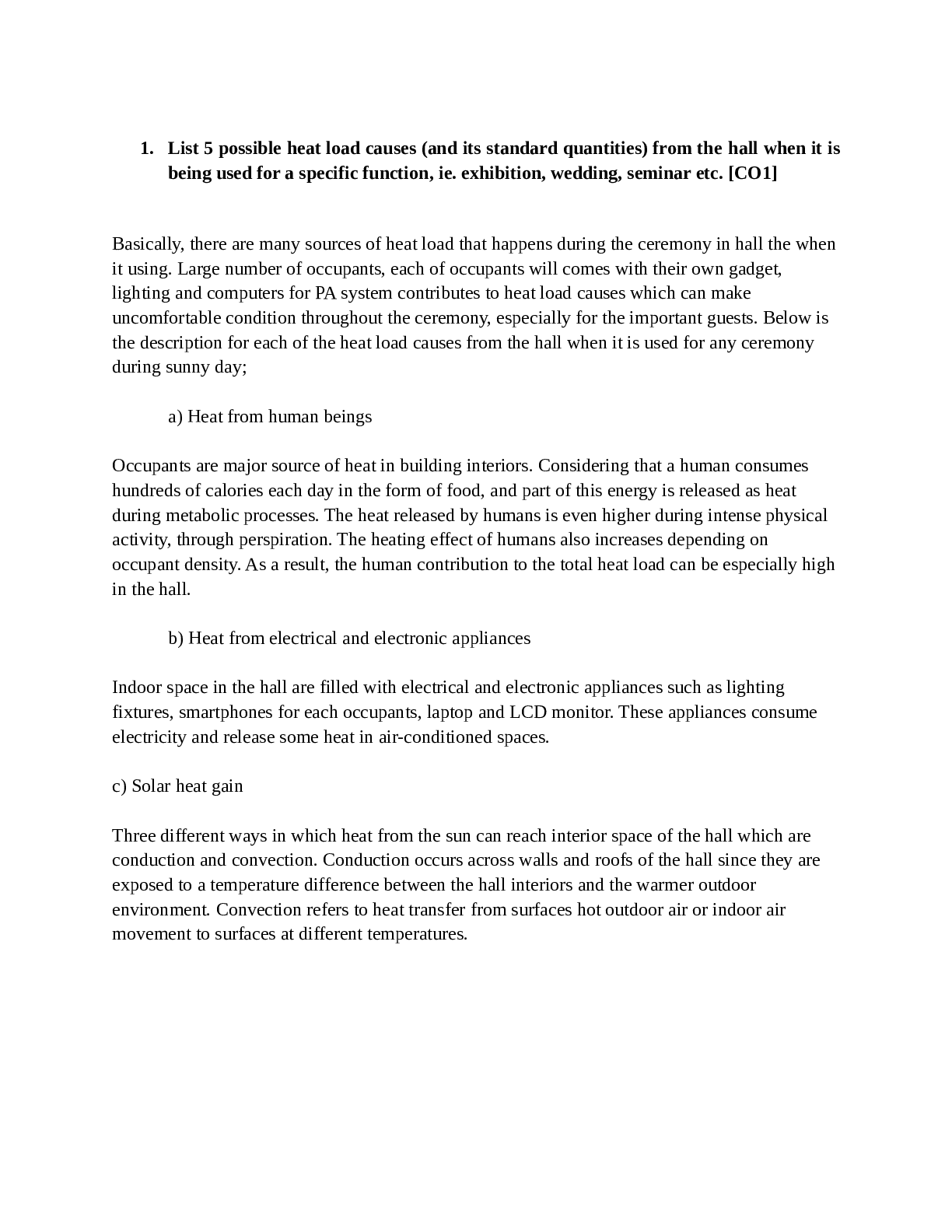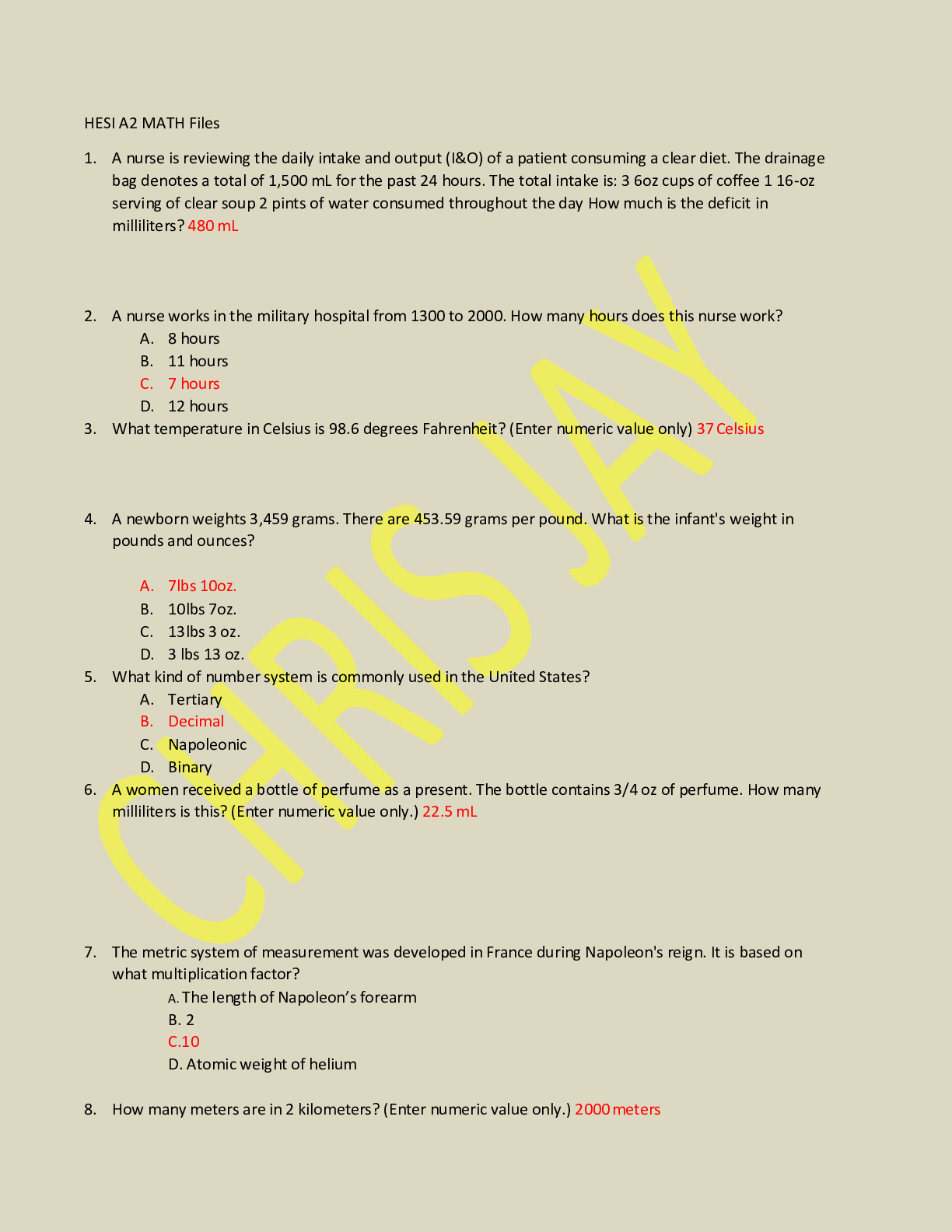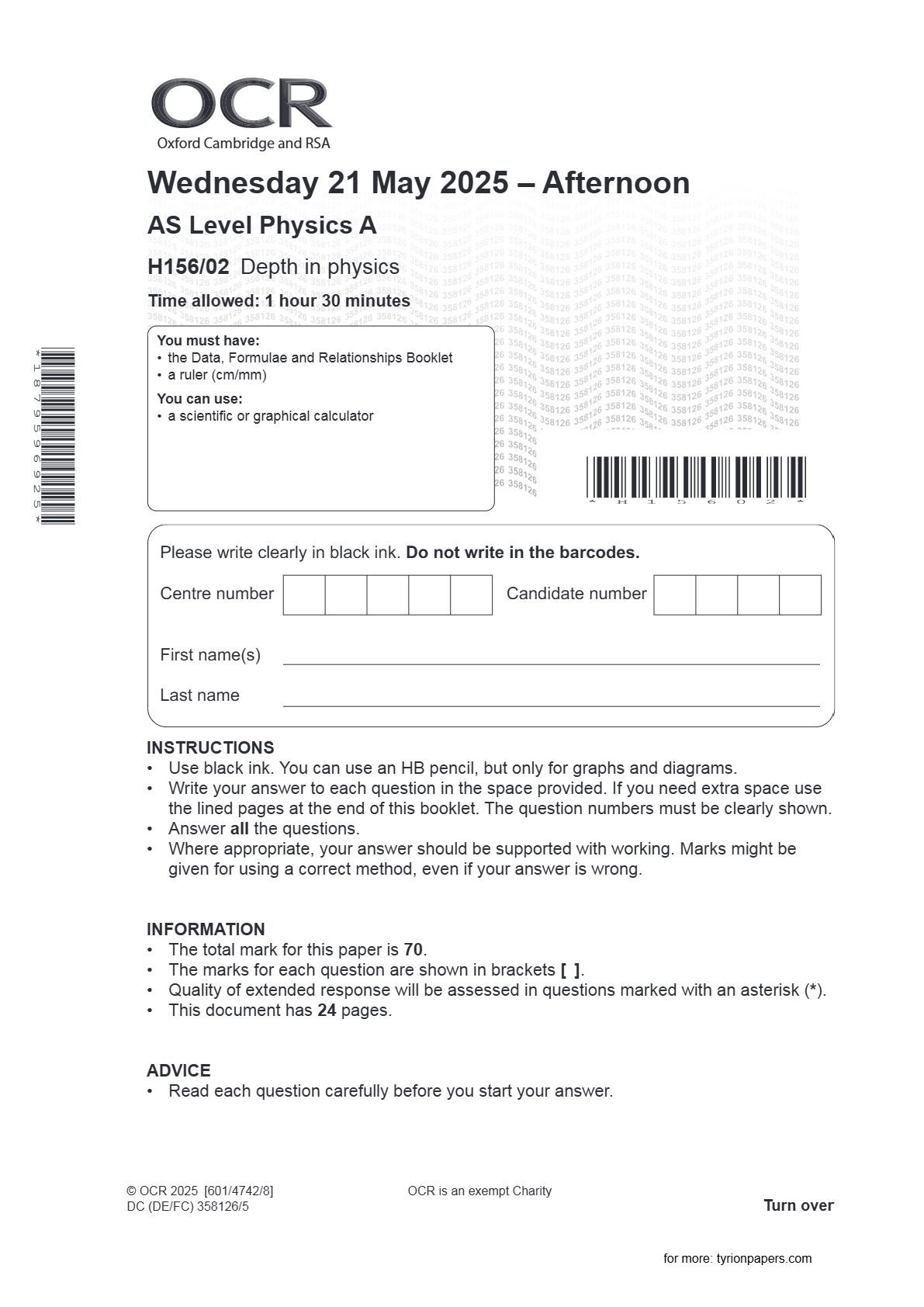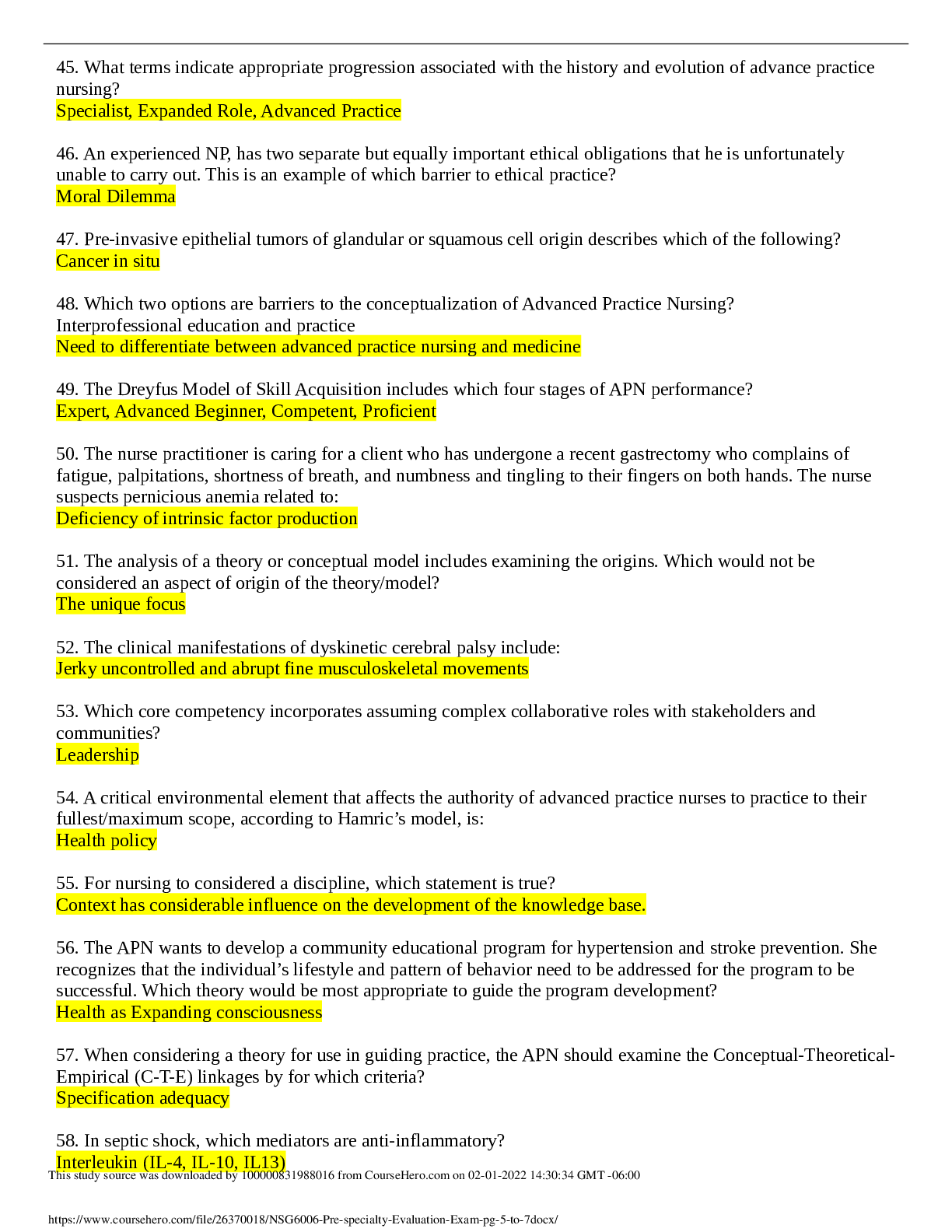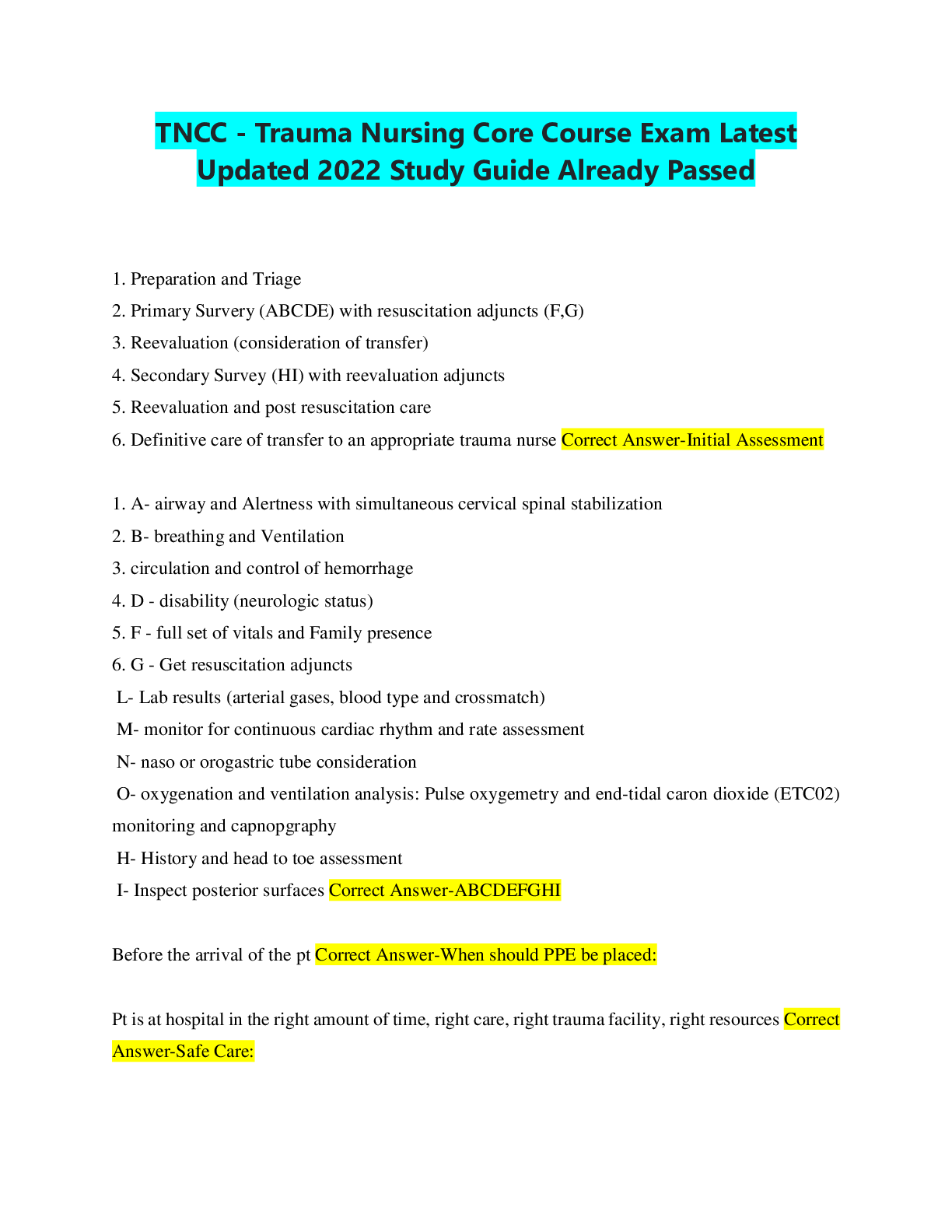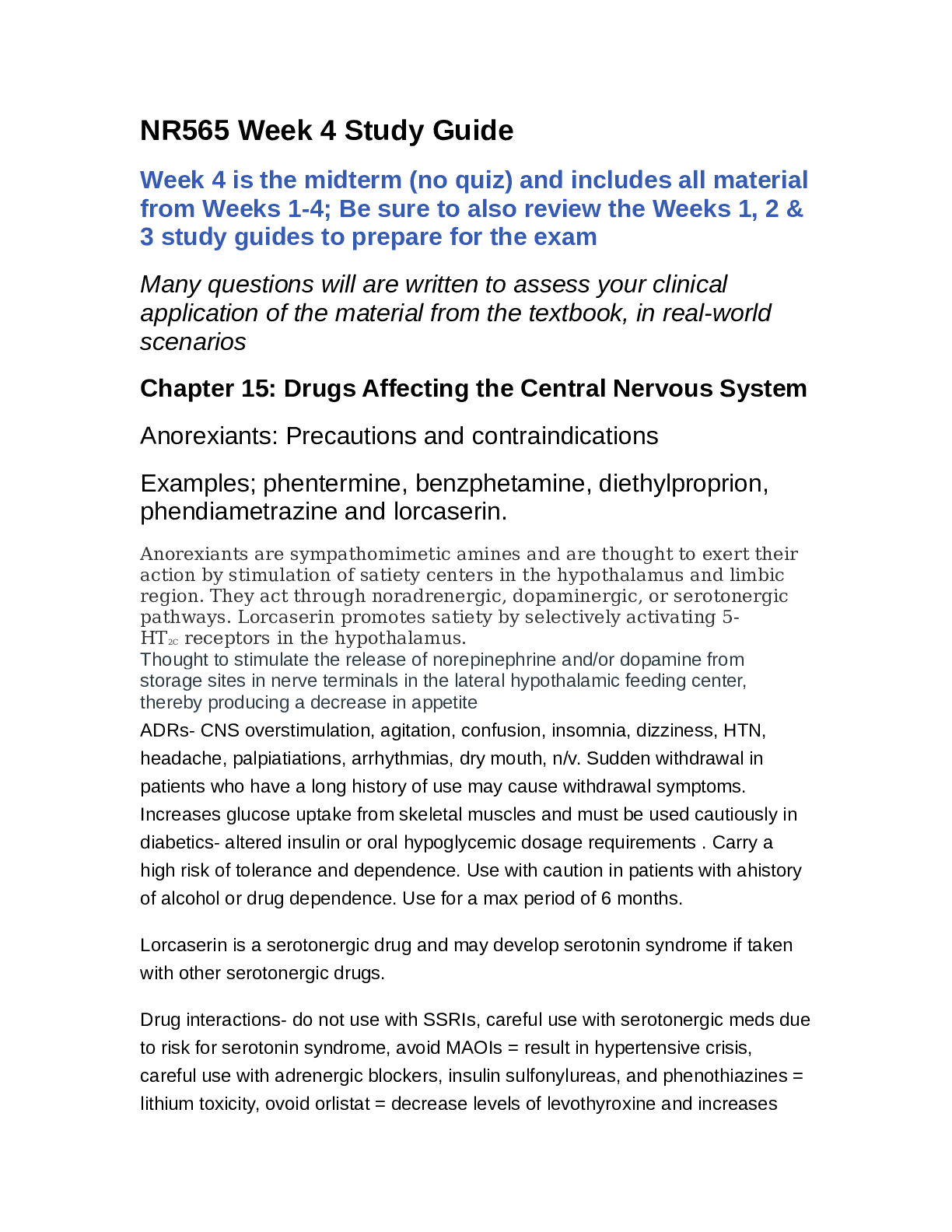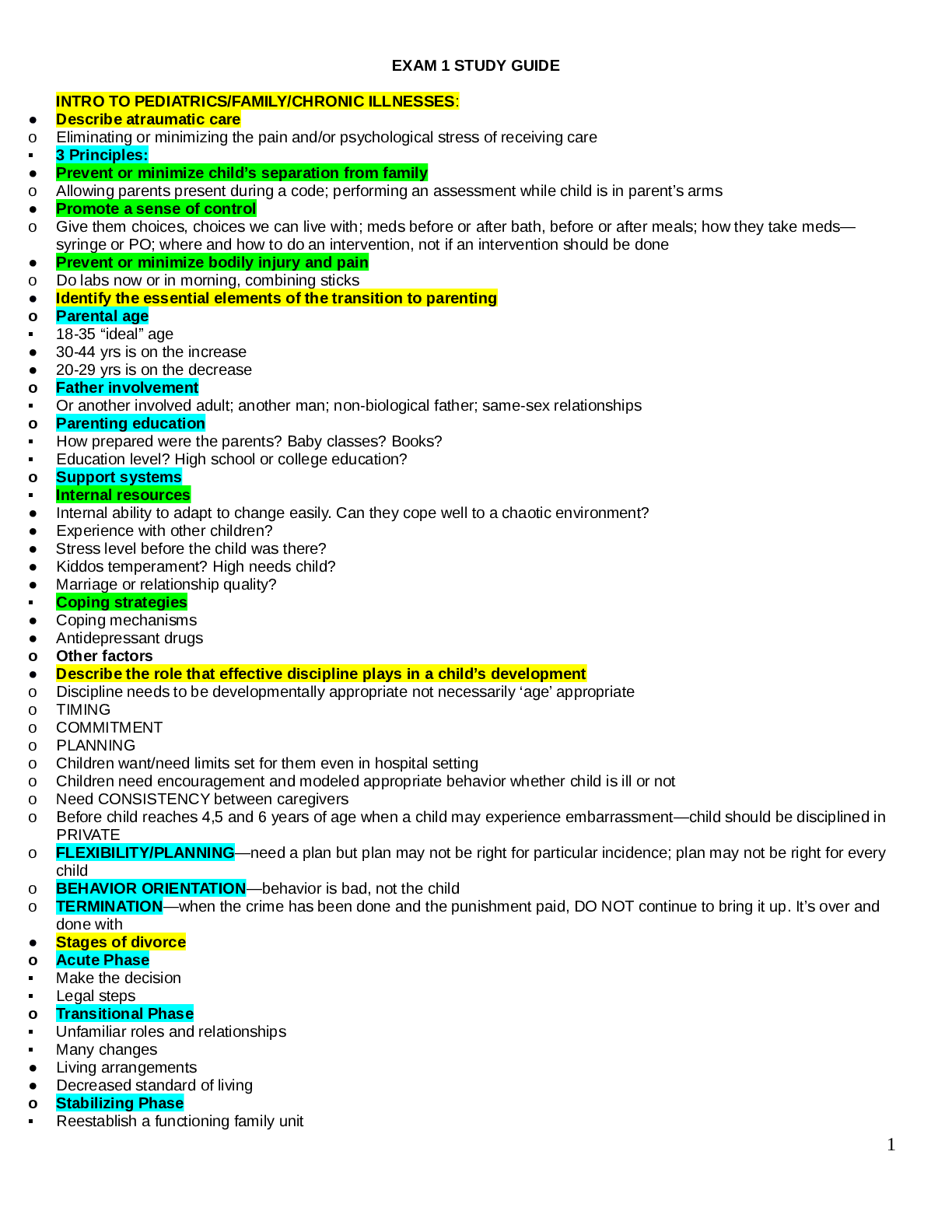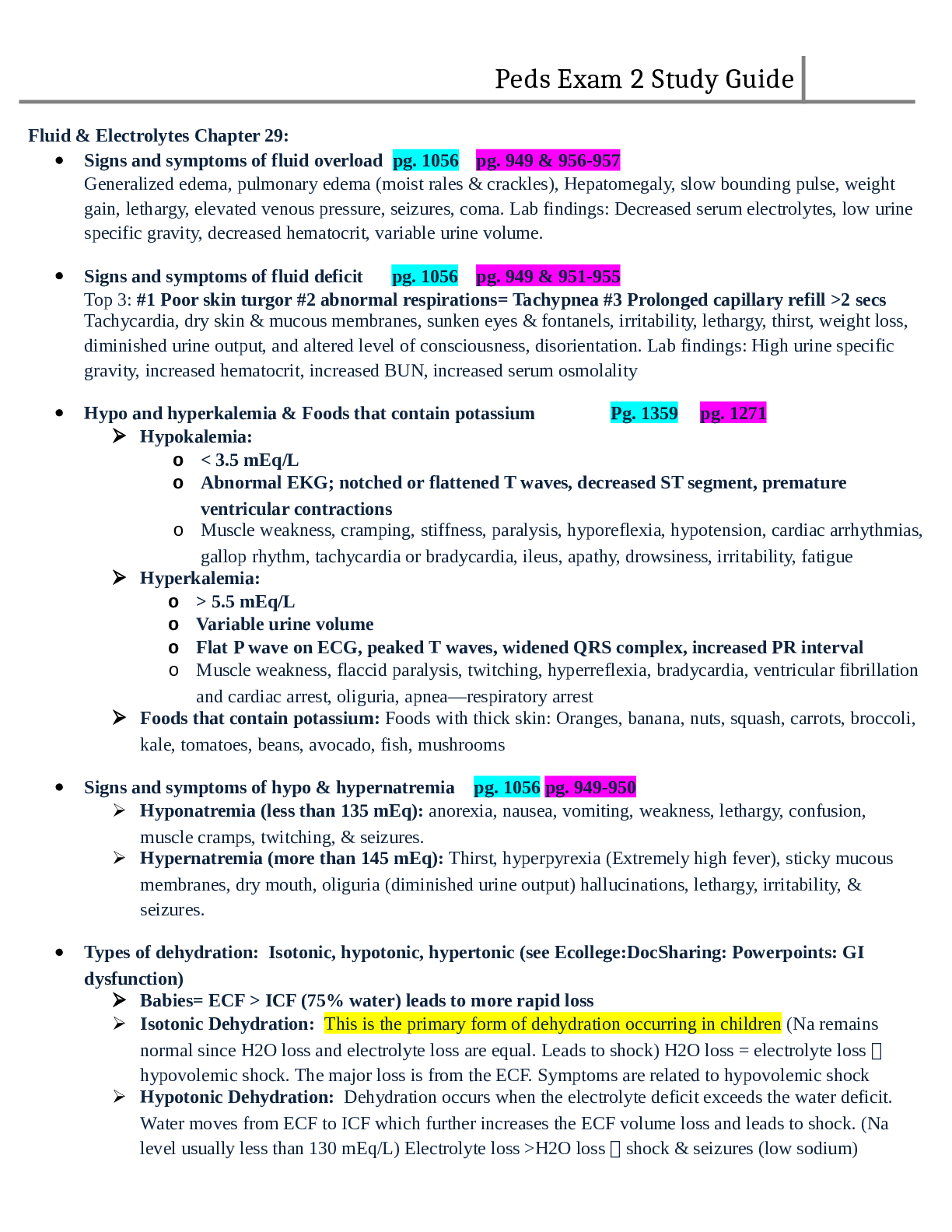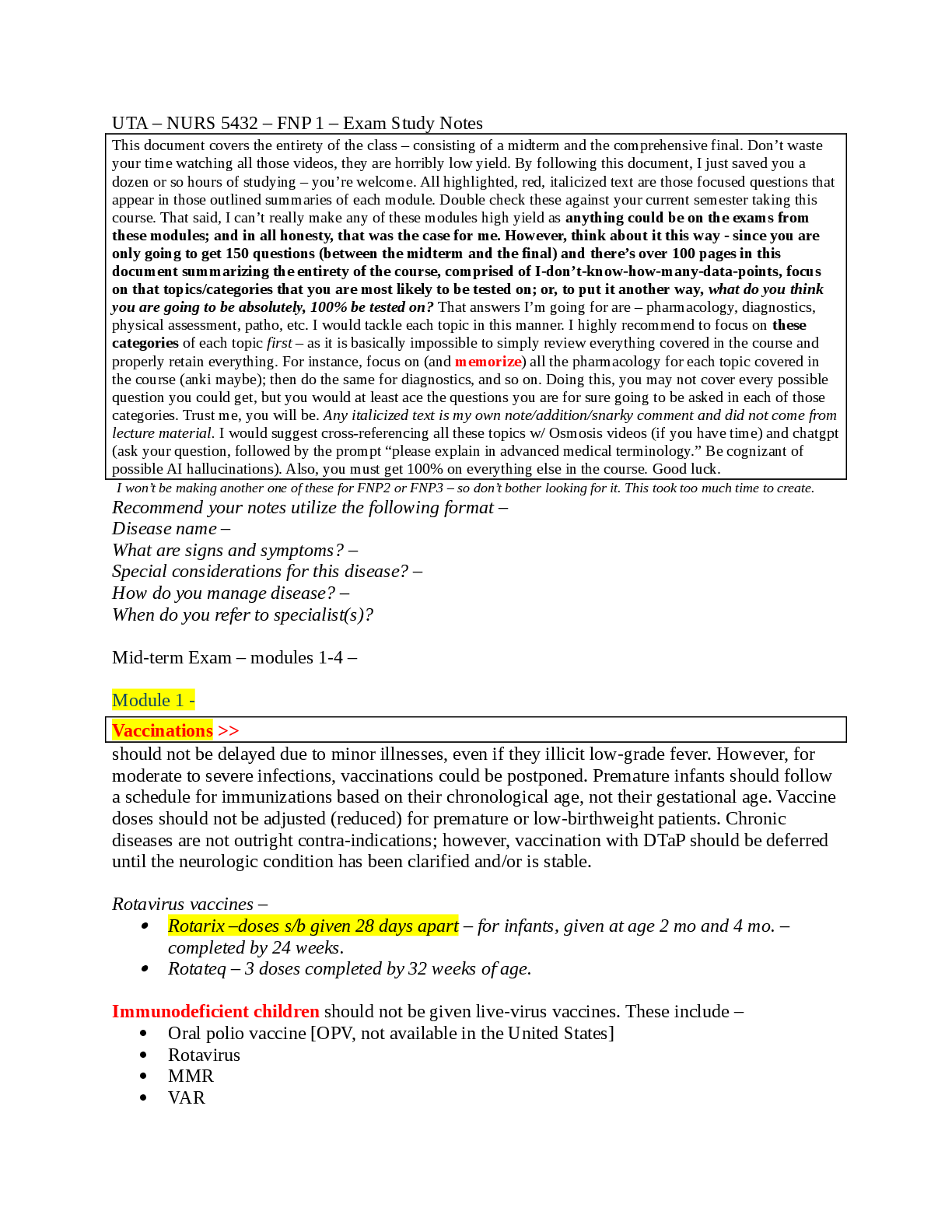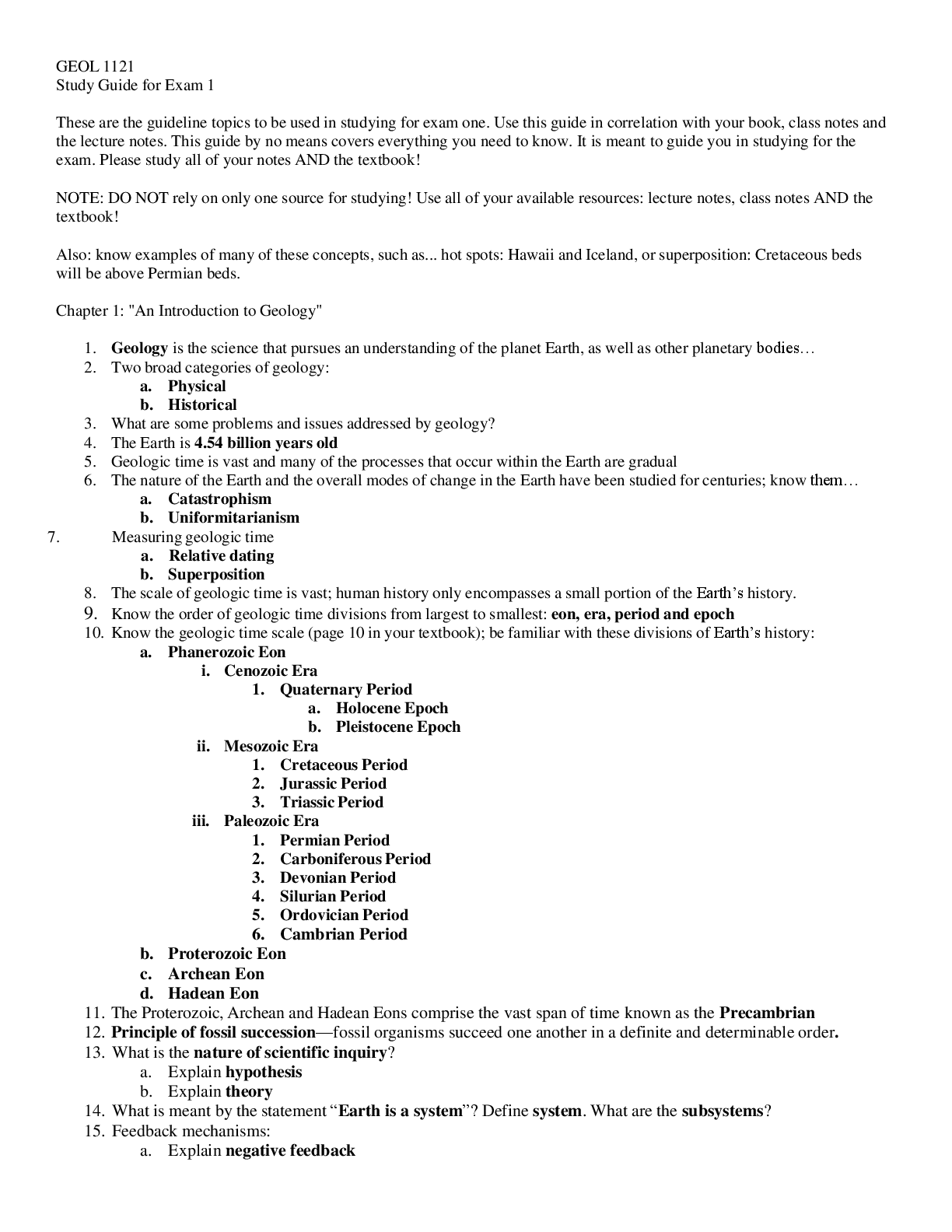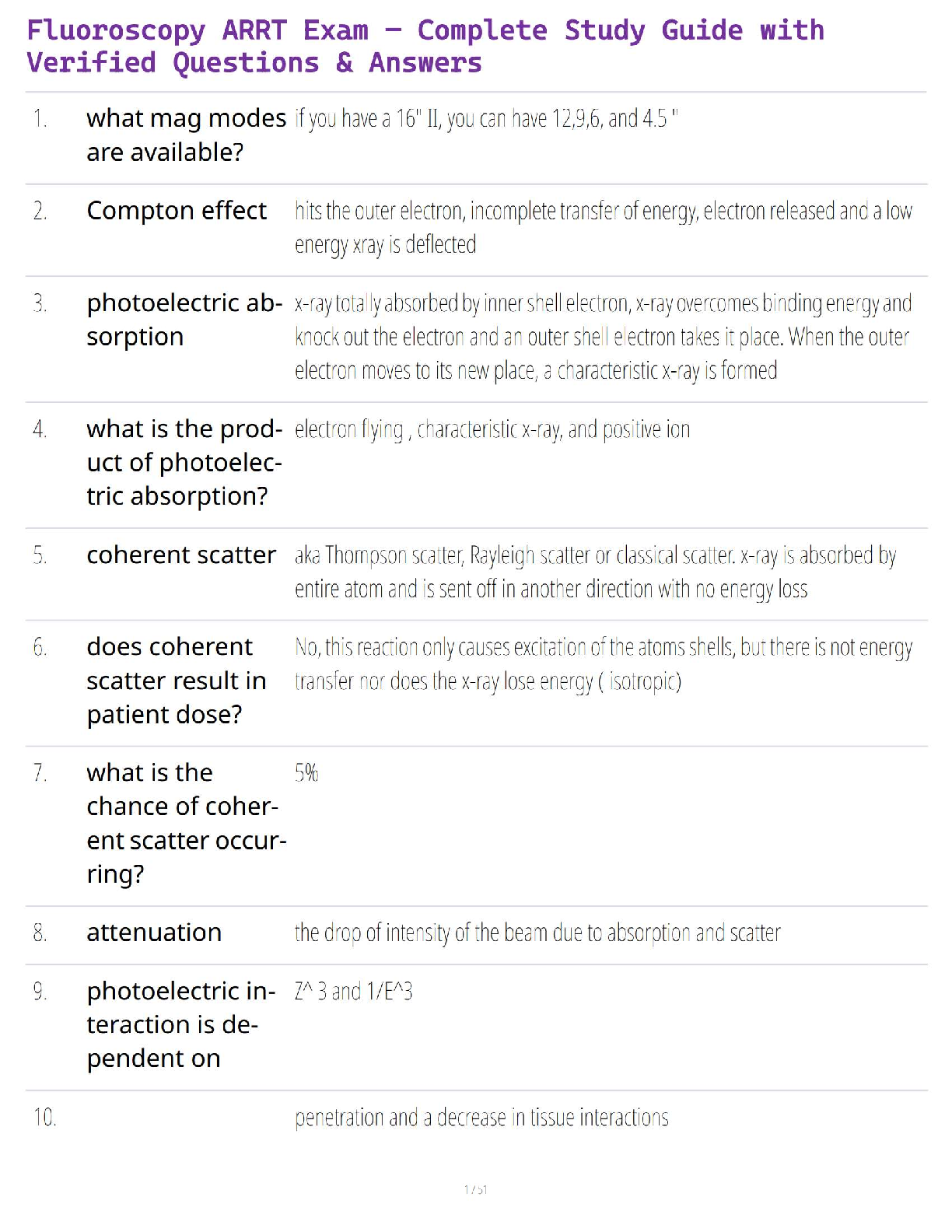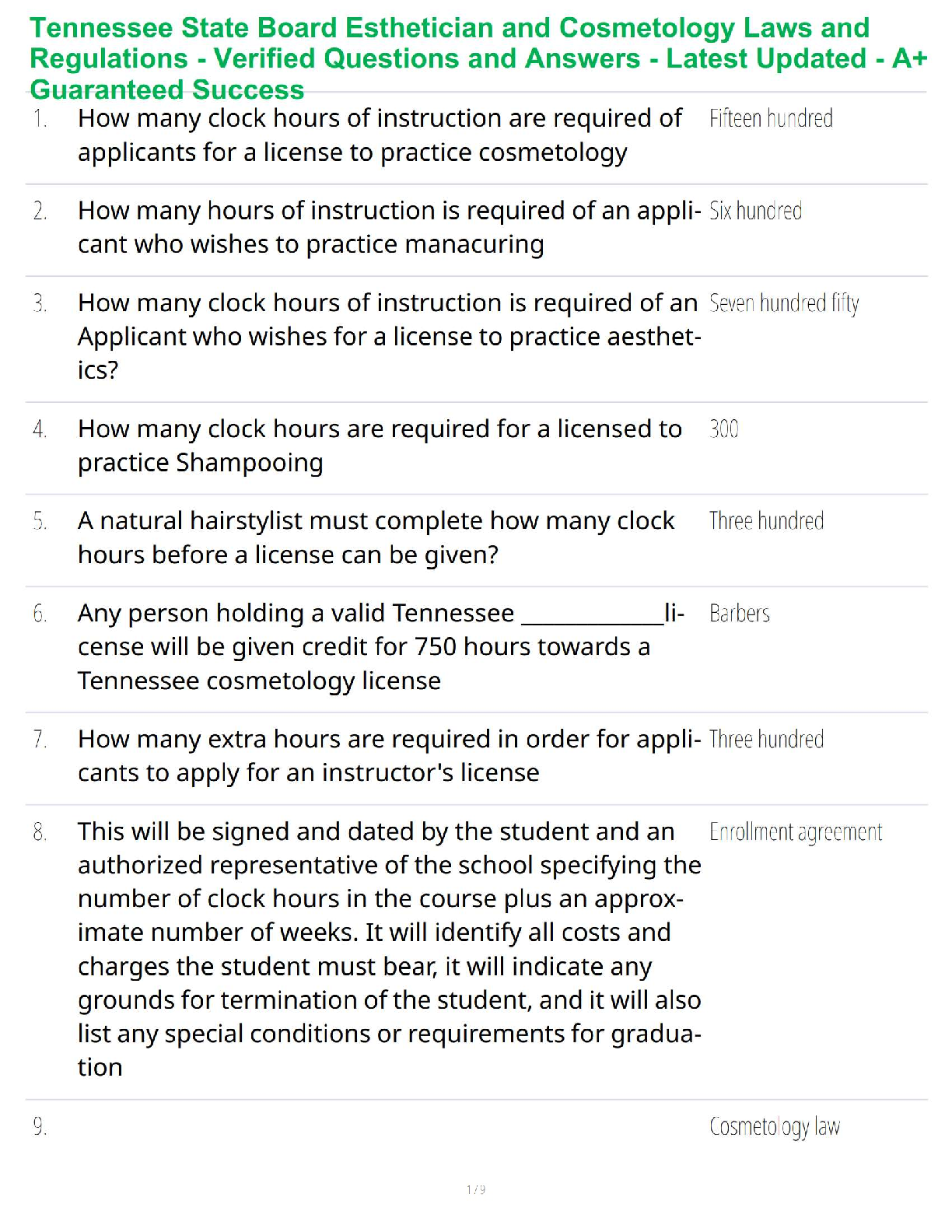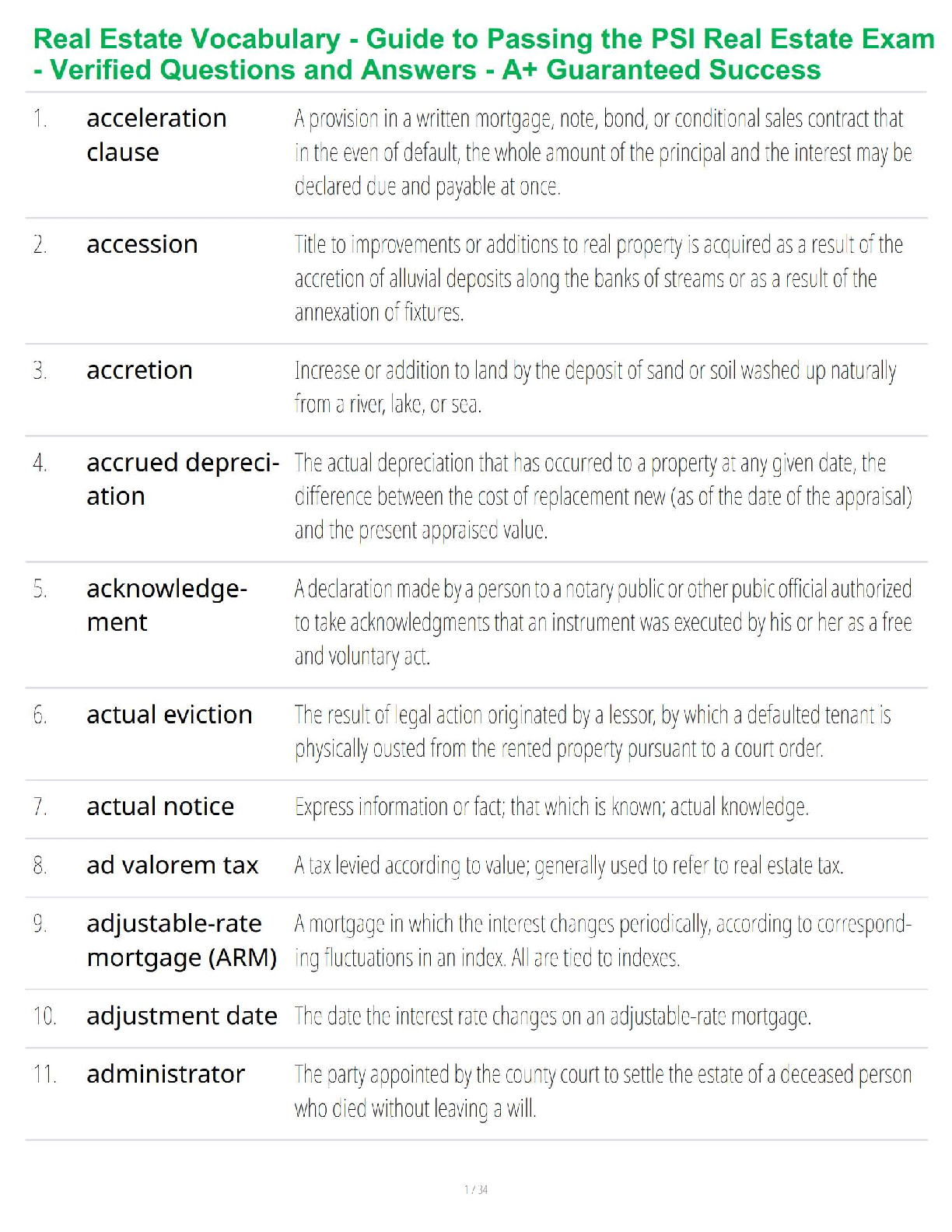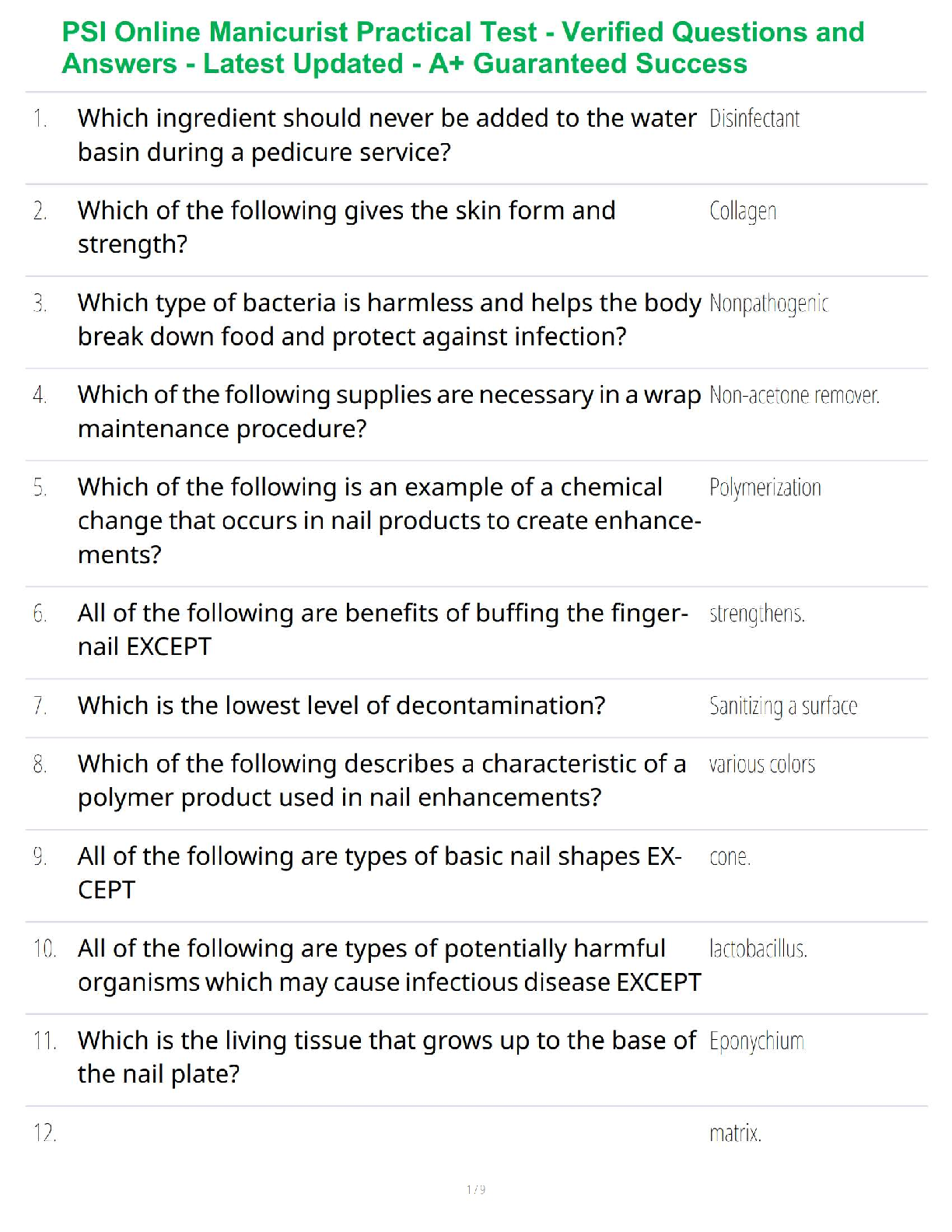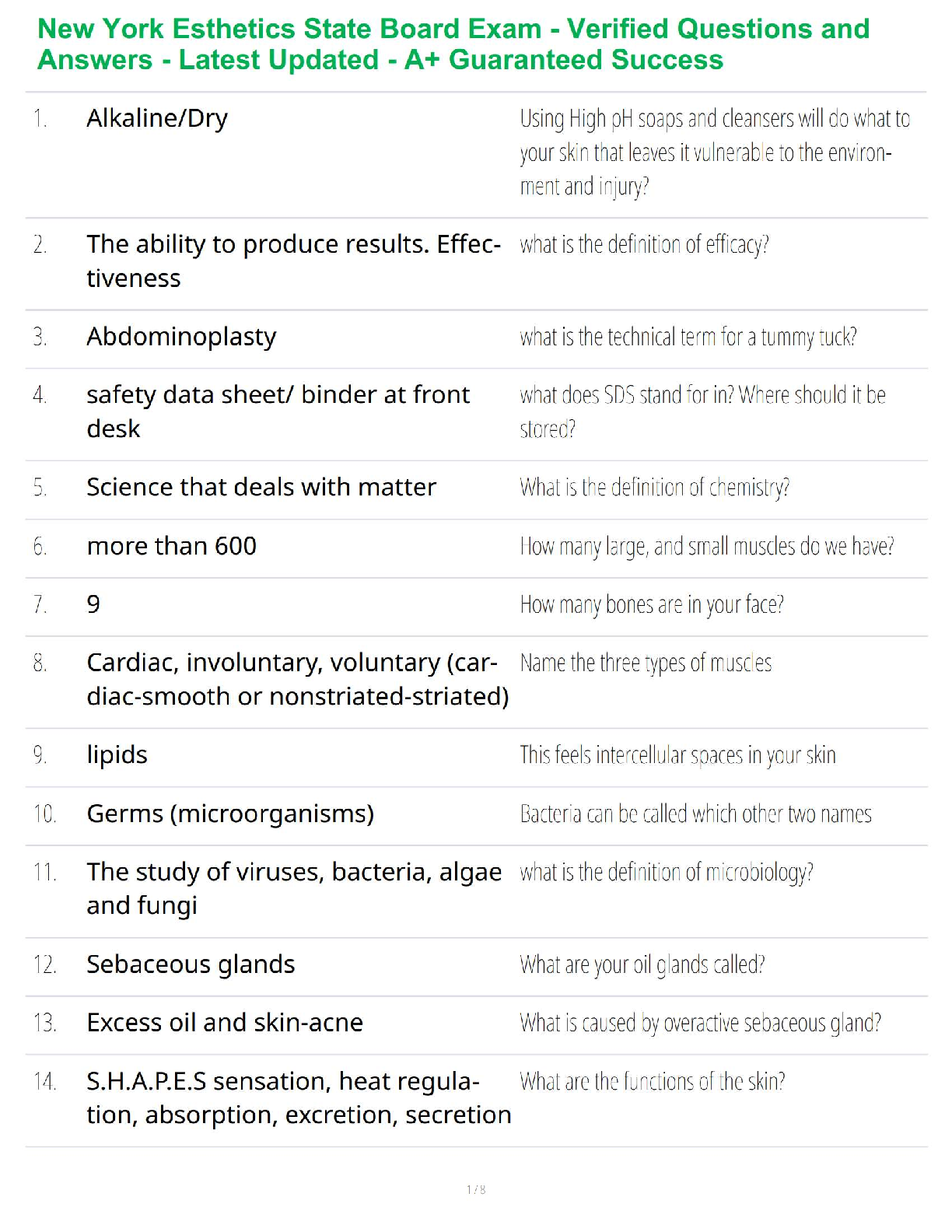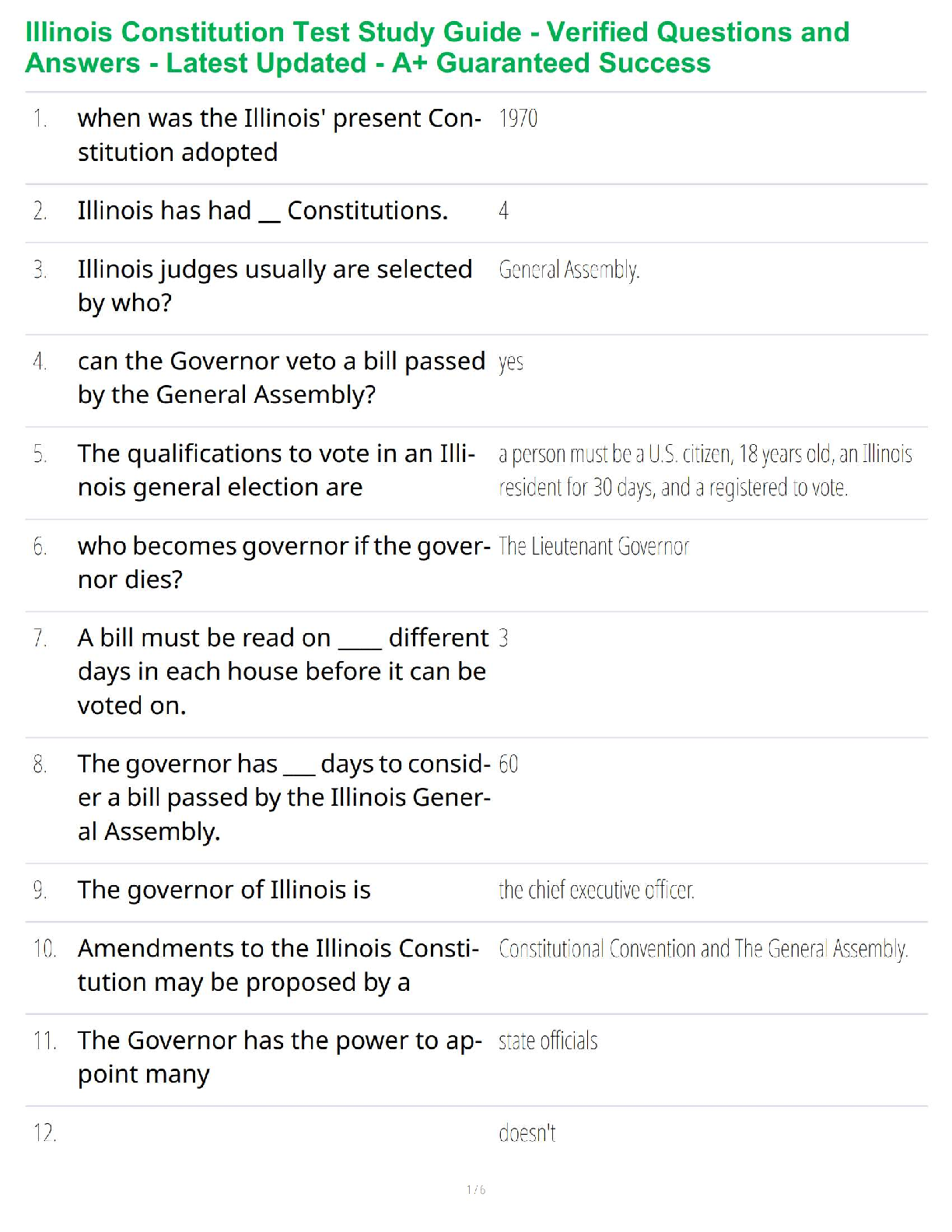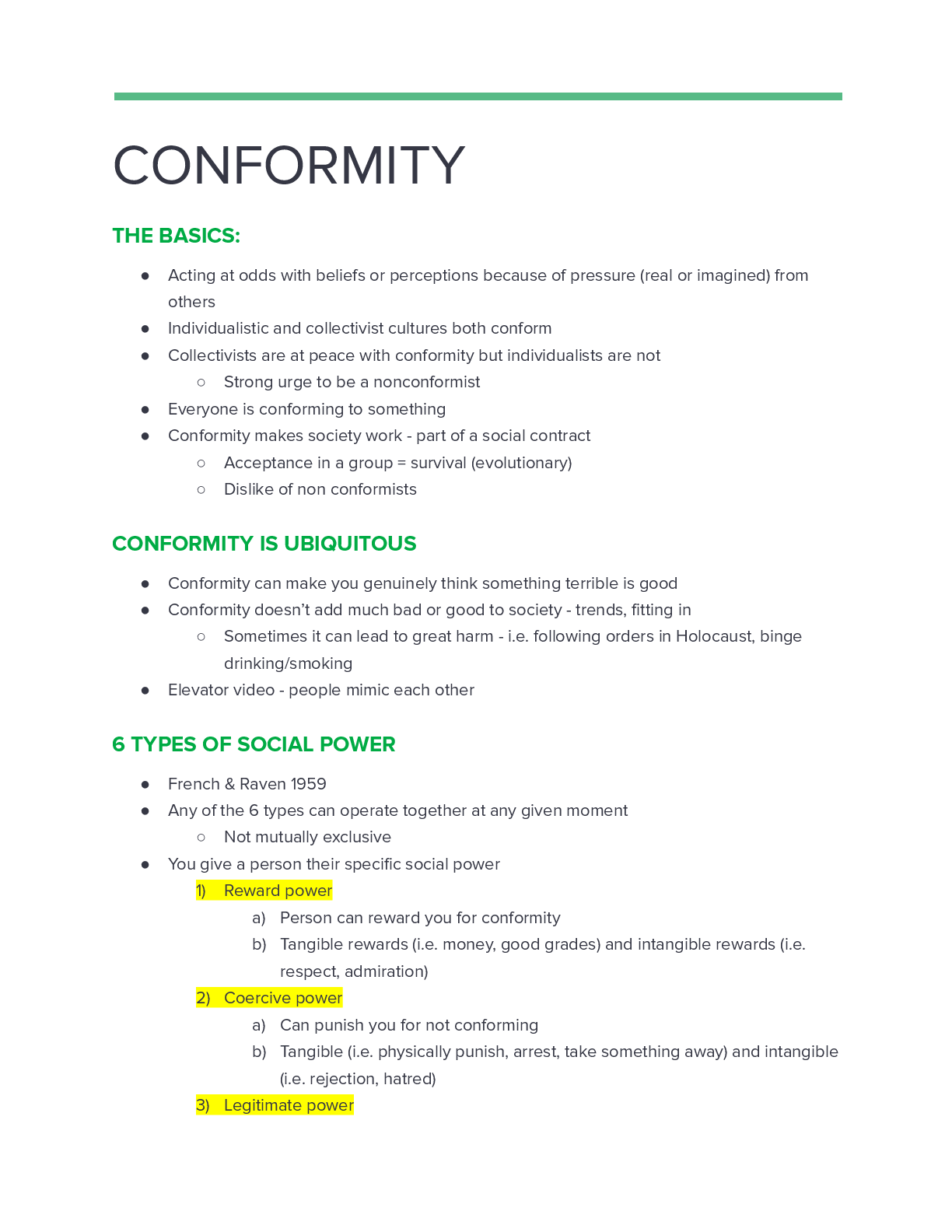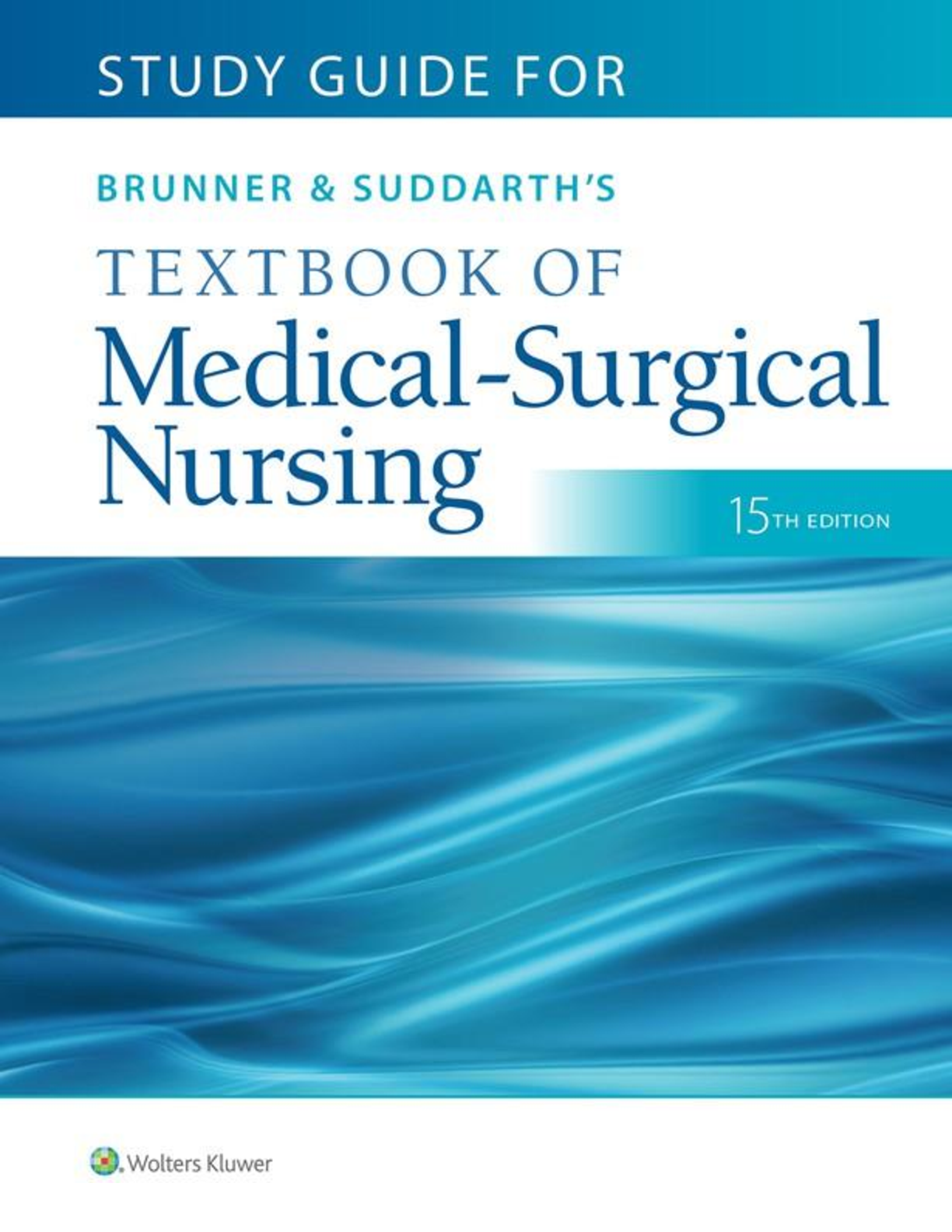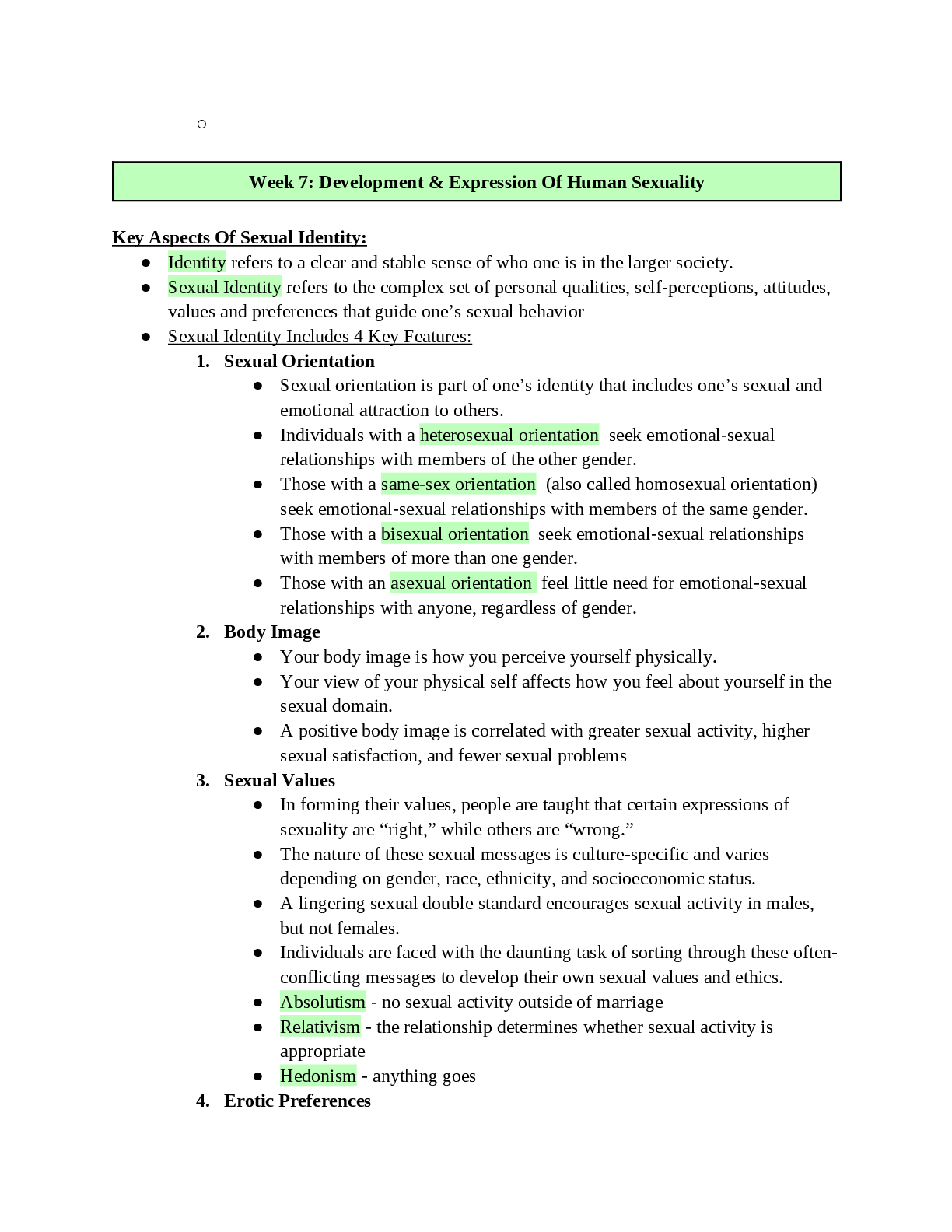MKT315 Spring 2019 Midterm Study Guide
The following are marketing concepts that students are expected to know for the MKT315 Midterm Exam chapters 1-6,13,14
1. Marketing-
the activity of exchanging offerings that h
...
MKT315 Spring 2019 Midterm Study Guide
The following are marketing concepts that students are expected to know for the MKT315 Midterm Exam chapters 1-6,13,14
1. Marketing-
the activity of exchanging offerings that have value for costomers/clients.
2. B2C and B2B markets-
Business to business / Business to Consumer, two types of marketing
3. Marketing mix / the 5-P’s-
Promotion
Product
Price
Place
4. Exchange and transaction-
Exchange is the act of obtaining a desired object via offering something in return. Transaction is marketing’s
unit of measurement
5. Environmental Forces / environmental scan.
environmental forces include technology, regulations, economy, competition, and social factors
Environmental scanning is the process of gathering information about events and their relationships within
an organizations internal and external environment
6. Evolution of Marketing / eras / Marketing Concept.
Production era colonial-1920s
Sales era 1920-1960
Marketing concept era 1960s-1970s
Societal marketing era 1970s-now
7. Organizational buyers vs. Ultimate Consumers
Entity which buys for resale or distribution to ultimate consumers of product/service
Ex. Charity buys farmers crops to distribute to low income families.
8. Profit equation
Profit =Revenues-cost
9. Market segmentation
Dividing a target market into smaller (micro) markets of more and more homogeneous individuals
10. SWOT analysis
Strengths
Weaknesses
Opportunities
Threats and trends
11. Consumer behavior
The study of figuring out what customers want, and are willing to buy
12. SMART GOALS
SPECIFIC
Measurable
Achievable
Relevant
timely
13. Motivation (i.e. Maslow)
Psychological (hunger, thurst, clothing)
Safety and security (shelter, laws, stability)
Love/Belonging (intimacy relationships, groups)
Esteem (respect of others, dignity)
Self-actualization (personal growth, fulfilment)
14. Consumer behavior factors
Psychological factors
This study source was downloaded by 100000831988016 from CourseHero.com on 05-03-2022 05:01:58 GMT -05:00
https://www.coursehero.com/file/53480192/MKT315-Midterm-Spring-19-Study-Guidedocx/
MKT315 Spring 2019 Midterm Study Guide
o Motivation
o Perception
o Personality
o Learning
o Values and lifestyle
o attitude
Sociocultural
o Social class
o Culture
Personal
o Family size
o occupation
Economic
o Income level
o Liquid assets
o Attitude towards spending
15. Perception
Awareness of something
16. Selective perception
A way in which consumers notice, receive, understand, and retain certain information, but not others.
Gen Z, born 1996 to present (accepted dates vary)
Millennials, born 1977 to 1995
Gen X, born 1965 to 1976
Baby Boomers, born 1946 to 1964
Traditionalists, born 1945 and earlier
17. learning
Acquisition and later recall or recognition of stored information
18. Word of mouth
People communicating with others about products or services via any medium
19. VALS
Values, Attiitudes, and lifestyles survey model consumers categorized by their lifestyle, resources, risk
taking, values & interests.
20. Reference groups (meaning, types)
Groups people belong to or identify with; influence attitudes, values, search and buying decisions.
21. Organizational buying demand
Buying behavior of an organization
Includes government, industry, & resellers
Different from consumer buying because of order size and buying objective
22. Organizational buying centers
The organizational buying process has a more complex and usually more formal structure for purchasing.
This process is sometimes characterized by the term buying center or buying committee involving multiple
people and areas.
23. Stages of Buying Process
Need identification
Information search
Assessment of alternatives
Purchase decision
Post-purchase behavior
24. Marketing research – definition and process
Process of analyzing data about a company’s product or service. Helps company understand customer, how
to communicate effectively, tailor products, develop new ideas, compete with others
25. Marketing research process
This study source was downloaded by 100000831988016 from CourseHero.com on 05-03-2022 05:01:58 GMT -05:00
https://www.coursehero.com/file/53480192/MKT315-Midterm-Spring-19-Study-Guidedocx/
MKT315 Spring 2019 Midterm Study Guide
Identify the problem
Develop the research plan
Conduct research
Analyze data and report findings
Take action
26. Primary research
Research a firm design to answer new questions
27. Secondary research
Data already collected.
28. Qualitative research – types
Open-ended research questions to understand a buyers reasoning and emotions. No statistical pull.
focus groups, interviews, and observational research
29. Quantitative research – types
Designed to produce numerical values which can be mathematically analyzed
30. Market segmentation
Dividing of the entire available market into groups of consumers with similar characteristics or motivation
31. Examples of each type of segmentation (demographic, geographic, psychographic, etc.)
Geographic- where they are
Demographic – age, gender, income
Psychographic – How they act and feel
Behavioral – buying they do now as predictor
32. Product positioning
A strategy used to influence how buyers perceive a product/service in comparison to its competitors
33. Positioning Statements
Define target market
Define category where brand competes
Benefits of what is being offered
Why brand will deliver on promise: proof
34. perceptual mapping
35. Differentiation
Strategy to separate a product/service from competitors in the minds of buyers on specific parameters like
price, utility, brand image, performance, quality reviews, etc
36. New product process
Idea generation; brainstorm ask buyers
Screening; narrowing the list to top ideas
Business analysis; research on feasibility
Product development; testable prototype
Product testing, including test markets
Commercialization; product launch
Evaluation; performance, sales, feedback
37. Product life cycle
Introduction -launch into marketplace
Growth - entering new markets, line extension, messaging to create demand
Maturity – growth slows and stabilizes or stops
Decline – loses market share, may die
38. Branding (logos, slogans trademarks, servicemarks)
Branding is the strategy used in creating a recognizable brand for a product or service. A brand is a mix of
elements buyers associate with a
[Show More]
